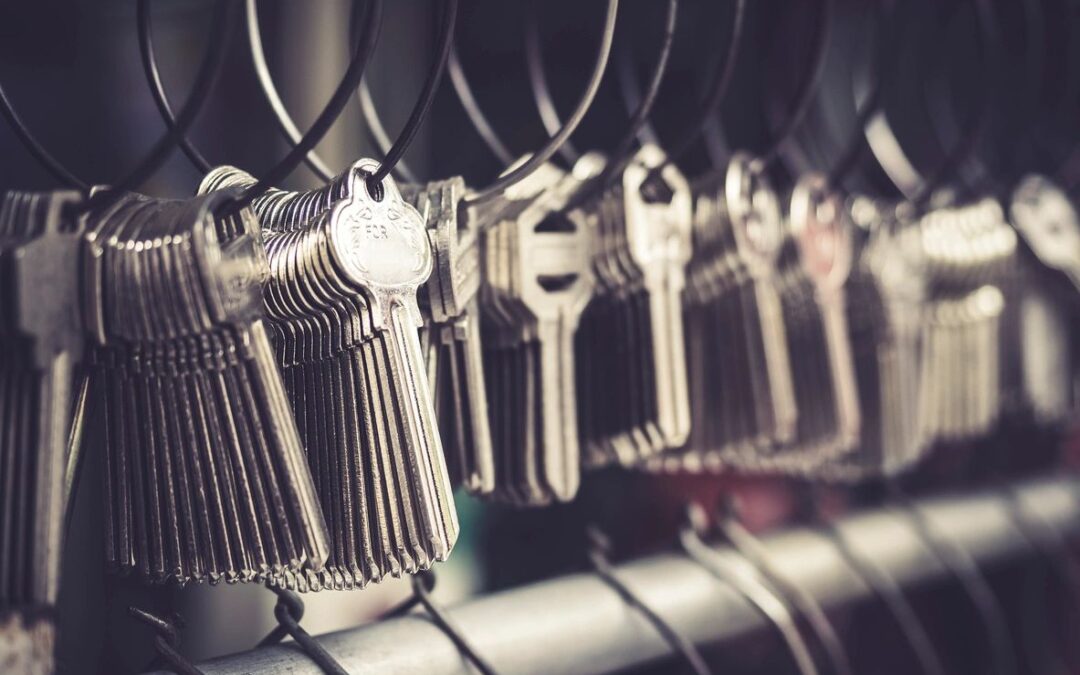By Evan Jones, Nicole Newman,* and Matt Johnson –
On May 9, 2022, the Patent Trial and Appeal Board denied Hillman Group, Inc.’s (“Hillman’s”) three petitions for inter partes review. See The Hillman Group, Inc. v. Hy-Ko Products Co. LLC, IPR2022-00168, -00169, and -00174. Parallel litigation in the Eastern District of Texas between these two key-duplication competitors is scheduled to commence in July 2022. In the district court litigation, Hy-Ko Products Company LLC (“Hy-Ko”) alleges that Hillman’s products infringe U.S. Patent Nos. 9,656,332, 9,682,432 and 10,421,133 (the “’332 patent,” “’432 patent,” and “’133 patent,” respectively). Complaint at 16, Hy-Ko Products Co. LLC v. The Hillman Group, Inc., 2-21-cv-00197 (E.D. Tex. 2021). These patents relate generally to apparatuses and methods for duplicating keys, and more specifically, for cutting duplicate keys based on a captured image of a master key. In addition, Hy-Ko alleges that Hillman engaged in false advertising, unlawful conversion of property or receipt of stolen property, unfair competition, and infringement of Hy-Ko’s patents through reverse engineering of an illegally-acquired Hy-Ko key-duplication machine. Complaint at 1, Hy-Ko Products Co. LLC v. The Hillman Group, Inc., 2-21-cv-00197 (E.D. Tex. 2021).
In November 2021, concurrent with the district court litigation, Hillman filed three petitions for inter partes review of the Hy-Ko’s ’332, ’432, and ’133 patents. See IPR2022-00168, -00169, and -00174. The Board simultaneously denied institution of all three of Hillman’s petitions on similar grounds. In doing so, the Board found that, on balance, the six “Fintiv factors” favored denial of institution.
For the first Fintiv factor, the Board asked whether there was a stay in place in the Texas litigation. As there was no request by the parties for a stay and the issue was yet to be ruled on by the district court, the Board considered this factor neutral.
For the second factor, the Board looked at the proximity of the court’s trial date to the Board’s projected statutory deadline for a final written decision. The Board found that this factor weighed “strongly” in favor of denial, noting that a final decision for an IPR, if instituted, would be due nearly ten months after the jury selection was scheduled to begin.
The third Fintiv factor—investment in the parallel proceeding by the court and the parties—also weighed in favor of denial. The Board noted that despite the petitioner’s general timeliness in filing the petition, the district court had already held a claim construction hearing, and expert discovery had closed.
Fourth, the Board looked at the overlap between issues in the parallel proceedings. The Board acknowledged that Hillman stipulated that it would not pursue the specific obviousness combinations and anticipation challenges as those used in the IPR, but the Board ultimately found that there was a risk of related prior art being brought up in the trial. Therefore, the Board deemed this factor “marginally against denial.”
Fifth, the Board examined whether the petitioner and the defendant in the parallel proceedings were the same party. As this was the case, the Board weighed this factor in favor of denial.
The sixth factor encompasses other circumstances that impact the discretion of the Board to deny a petition. For this factor, the Board considered Hillman’s arguments that Hy-Ko overwhelmed the examiner with prior art during prosecution, and alternatively, that there was public interest in allowing challenges to bad patents. The Board was not persuaded by either argument and found the last factor neutral.
In conclusion, the Board denied institution of Hillman’s petition for inter partes review, given the four Fintiv factors that tended toward denial.
* Nicole is a summer associate in Jones Day’s Boston Office.
Matthew Johnson
Latest posts by Matthew Johnson (see all)
- Delegated Rehearing Panel Sends Lifeline to Mercedes-Benz - June 27, 2025
- PTAB Clarifies Interim Workload Management Process - June 19, 2025
- April 2025 Institution Rate Slips Below 45 Percent - June 6, 2025

